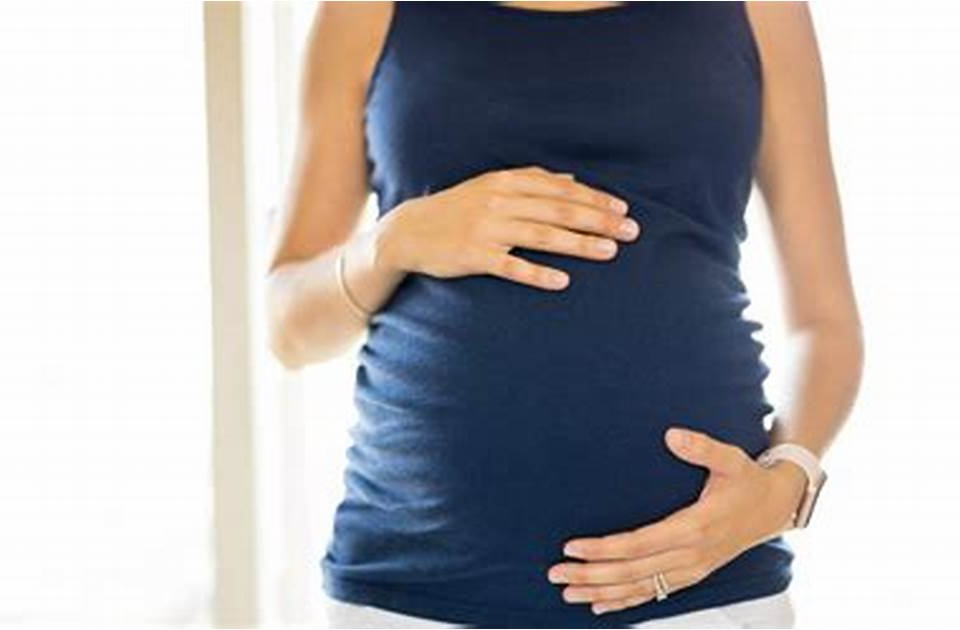

When my husband and I started trying for a baby, we didn’t expect the road ahead to be as difficult as it turned out to be. I had always assumed that, like most women, once I was ready to start a family, it would just happen. But after a year of trying and nothing happening, I began to worry. I started researching and scheduling appointments with fertility specialists, hoping for some answers. That’s when I was diagnosed with diminished ovarian reserve (DOR), and suddenly, everything I thought I knew about my body changed.

What is Diminished Ovarian Reserve?
Diminished ovarian reserve means that the quantity and quality of a woman’s eggs are lower than what would be expected for her age. It can happen for various reasons, including age, genetics, or conditions like endometriosis. For me, the diagnosis came as a shock. I was in my early 30s and had never imagined this would be an issue for me.
Dr. Adams, a fertility specialist, explained, “Diminished ovarian reserve doesn’t mean that you can’t get pregnant, but it does mean your chances are lower compared to someone with a typical egg supply. It’s about both the number of eggs and their quality.”
When I first heard those words, I felt like the rug had been pulled out from under me. I had no idea that the eggs I was born with would decline over time, and now, I had fewer good eggs available for pregnancy. I needed a plan, and fast.
How Diminished Ovarian Reserve Affects Fertility
As Dr. Adams explained, “When you have DOR, the number of healthy eggs in your ovaries decreases. This can make it harder to conceive because fewer eggs are available for fertilization. Even if ovulation happens regularly, the quality of the eggs is just as important.”
For many women with DOR, getting pregnant can be a challenge because not only are fewer eggs available, but the eggs themselves may not be as healthy, which can result in failed fertilization or miscarriage. It’s a hard reality to face, but I was determined not to give up. I knew I needed to do everything I could to improve my chances.
Trying Fertility Treatments: From Clomid to IVF
Our first step was trying Clomid, a medication often used to stimulate ovulation. I had irregular cycles to begin with, and Clomid was meant to help regulate ovulation and improve our chances. But after several cycles, we had no success. It felt like a punch in the gut every time I saw a negative pregnancy test.
Dr. Adams advised us that IVF (in vitro fertilization) might be the best option, given my diagnosis. “For women with diminished ovarian reserve, IVF can help because we can control the egg retrieval process and choose the best eggs for fertilization,” he told me.
At first, I was intimidated by the idea of IVF. It seemed like a big step, and I wasn’t sure if I was ready to go all-in. But after more research and discussions with my husband, we decided to move forward. IVF was our best shot at having a baby.
The IVF Journey: Hope and Hard Work
The IVF process was intense. I had to undergo hormone therapy to stimulate my ovaries and produce more eggs. Even though I had DOR, the doctors hoped to retrieve a few healthy eggs that would give us a shot. I remember feeling both excited and nervous—excited because this was our best chance, but nervous because the stakes felt so high.
The day of the egg retrieval, I was a bundle of nerves. But the procedure itself was relatively quick, and the clinic was great at walking me through every step. The doctors were able to retrieve 6 eggs, which was more than I had hoped for, but still fewer than many women would get in a typical IVF cycle.
Dr. Adams reassured me, “With DOR, we may not get as many eggs, but the quality of those eggs is what counts. We can still have a successful cycle with fewer eggs.”
The fertilization process went smoothly, and we ended up with 3 healthy embryos. After another round of testing, the clinic selected the best embryo to transfer. The embryo transfer itself was relatively painless, but waiting for the two-week results felt like an eternity.
The Waiting Game: Positive Results and the Emotional Rollercoaster
Two weeks later, we got the call. The embryo had implanted. I was pregnant! I can’t even describe the mix of emotions I felt—relief, joy, and disbelief. It was all so surreal. IVF had worked for us, even with diminished ovarian reserve.
During the whole process, Dr. Adams had explained, “While DOR can make fertility more challenging, IVF gives us control over the eggs and embryos. This greatly improves the chances of a successful pregnancy, even for women with DOR.”
The support I received from my fertility team throughout the IVF process was invaluable. I learned that having DOR didn’t mean I couldn’t have a family—it just meant that I needed a little extra help. IVF gave me that help and opened the door to the family I’d always dreamed of.
What I’ve Learned: Advice for Others with Diminished Ovarian Reserve
If you’re reading this and you’ve been diagnosed with diminished ovarian reserve, I want you to know that you’re not alone. DOR is a tough diagnosis, but it doesn’t mean the end of your fertility journey. Here are some things I’ve learned along the way:
- Don’t Panic: I know it’s hard not to panic when you get a DOR diagnosis. But it’s important to remember that many women with DOR go on to have successful pregnancies with the help of IVF or other fertility treatments.
- Explore All Options: IVF is one of the most effective treatments for women with DOR. If you’re not successful with medications, don’t be afraid to consider IVF. It can be the key to achieving pregnancy when natural conception isn’t possible.
- Be Ready for Emotional Ups and Downs: The IVF process isn’t just physically challenging—it’s emotionally taxing, too. You will likely face moments of doubt, frustration, and disappointment. But stay strong. Keep in mind that the journey may be long, but it’s worth it.
- Get Expert Help: Find a fertility specialist you trust. A good doctor will help guide you through your options, explain what’s happening with your body, and give you the best chance of success.
- Take Care of Yourself: Fertility treatments can be draining, so it’s important to take care of your physical and emotional well-being. Rest, eat well, and take time for yourself during the process.
A New Beginning: Parenthood After DOR
Today, I’m the proud mother of a beautiful baby boy. I look back at the rollercoaster of emotions, the endless doctor’s visits, and the uncertainty, and I realize it was all worth it. IVF gave us the chance to create the family we always wanted.
If you’re struggling with diminished ovarian reserve, please know that there is hope. It may take time, and it may require treatments like IVF, but it’s possible to have the family you dream of. I’m living proof of that, and I’m cheering you on as you walk your own journey toward parenthood.





